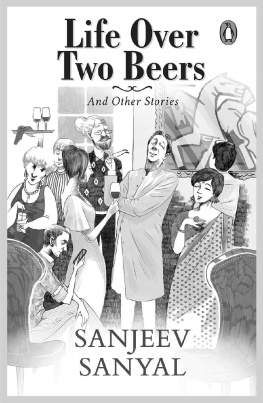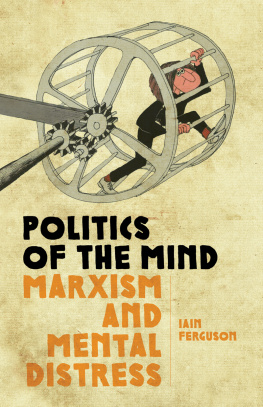Title Page
A MIND THAT FOUND ITSELF
An Autobiography By
Clifford Whittingham Beers
Foreword by Paul Andrews
Publisher Information
A Mind That Found Itself published in 2011 by
Andrews UK Limited
www.andrewsuk.com
This book is sold subject to the condition that it shall not, by way of trade or otherwise, be lent, resold, hired out or otherwise circulated without the publishers prior written consent in any form of binding or cover other than that in which it is published, and without a similar condition being imposed on the subsequent purchaser.
This Digital Version Copyright Andrews UK Limited
Cover Design by Nick Tiseo
The right of Andrews UK Limited to be identified as author of this book has been asserted in accordance with section 77 and 78 of the Copyrights Designs and Patents Act 1988.
Dedication
Dedicated to the memory of my uncle , Samuel Edwin Merwin, whose timely generosity i believe saved my life and whose death has forever robbed me of a satisfying opportunity to prove my gratitude - Clifford Whittingham Beers
First edition, March, 1908
Edited digital edition by Paul Andrews, December 2011
Foreword
By Paul Andrews
I have a deep interest in exploring the way the mind works, both in my reading and writing. From dreaming to waking, the mind is such a complex thing which every one of us uses constantly all the time throughout our lives.
Recent films such as Inception have looked at the way the mind perceives things, things which to the persons mind at that point in time seem as real as anything you or I see and feel in our normal waking day. One can often wonder what it must be like to be trapped within ones on mind, possibly in some sort of living nightmare, as is sometimes the case with some sufferers of mental illness.
This is a very absorbing autobiography by Clifford Whittingham Beers, which was a landmark reading piece upon its release. Until even recent history, people with any mental health issues were treated as an underclass, or even worse, when in fact as history itself shows us, the line between sanity and insanity, genius and madness is such a fine line often.
Please do read this book with an open mind, both in the context of when the text was original written over 100 years ago, and also in the way people are treated now, and also then. Please then read some more on current mental health care, and make up your own mind how much things changed in the past century, or not maybe.
Chapter 1
This story is derived from as human a document as ever existed; and, because of its uncommon nature, perhaps no one thing contributes so much to its value as its authenticity. It is an autobiography, and more: in part it is a biography; for, in telling the story of my life, I must relate the history of another selfa self which was dominant from my twenty-fourth to my twenty-sixth year. During that period I was unlike what I had been, or what I have been since. The biographical part of my autobiography might be called the history of a mental civil war, which I fought single-handed on a battlefield that lay within the compass of my skull. An Army of Unreason composed of the cunning and treacherous thoughts of an unfair foe, attacked my bewildered consciousness with cruel persistency, and would have destroyed me, had not a triumphant Reason finally interposed a superior strategy that saved me from my unnatural self.
I am not telling the story of my life just to write a book. I tell it because it seems my plain duty to do so. A narrow escape from death and a seemingly miraculous return to health after an apparently fatal illness are enough to make a man ask himself: For what purpose was my life spared? That question I have asked myself and this book is, in part, an answer.
I was born shortly after sunset about thirty years ago. My ancestors, natives of England, settled in this country not long after the Mayflower first sailed into Plymouth Harbour. And the blood of these ancestors, by time and the happy union of a Northern man and a Southern womanmy parentshas perforce been blended into blood truly American.
The first years of my life were, in most ways, not unlike those of other American boys, except as a tendency to worry made them so. Though the fact is now difficult for me to believe, I was painfully shy. When first I put on short trousers, I felt that the eyes of the world were on me; and to escape them I hid behind convenient pieces of furniture while in the house and, so I am told, even sidled close to fences when I walked along the street. With my shyness there was a degree of self-consciousness which put me at a disadvantage in any family or social gathering. I talked little and was ill at ease when others spoke to me.
Like many other sensitive and somewhat introspective children, I passed through a brief period of morbid righteousness. In a game of one-old-cat, the side on which I played was defeated. On a piece of scantling which lay in the lot where the contest took place, I scratched the score. Afterwards it occurred to me that my inscription was perhaps misleading and would make my side appear to be the winner. I went back and corrected the ambiguity. On finding in an old tool chest at home a coin or medal, on which there appeared the text, Put away the works of darkness and put on the armour of light, my sense of religious propriety was offended. It seemed a sacrilege to use in this way such a high sentiment, so I destroyed the coin.
I early took upon myself, mentally at least, many of the cares and worries of those about me. Whether in this I was different from other youngsters who develop a ludicrous, though pathetic, sense of responsibility for the universe, I do not know. But in my case the most extreme instance occurred during a business depression, when the family resources were endangered. I began to fear that my father (than whom a more hopeful man never lived) might commit suicide.
After all, I am not sure that the other side of my naturethe natural, healthy, boyish sidedid not develop equally with these timid and morbid tendencies, which are not so very uncommon in childhood. Certainly the natural, boyish side was more in evidence on the surface. I was as good a sport as any of my playfellows in such games as appealed to me, and I went a-fishing when the chance offered. None of my associates thought of me as being shy or morose. But this was because I masked my troubles, though quite unconsciously, under a camouflage of sarcasm and sallies of wit, or, at least, what seemed to pass for wit among my immature acquaintances. With grown-ups, I was at times inclined to be pert, my degree of impudence depending no doubt upon how ill at ease I was and how perfectly at ease I wished to appear. Because of the constant need for appearing happier than I really was, I developed a knack for saying things in an amusing, sometimes an epigrammatic, way. I recall one remark made long before I could possibly have heard of Malthus or have understood his theory regarding birth rate and food supply. Ours being a large family of limited means and, among the five boys of the family, unlimited appetites, we often used the cheaper, though equally nutritious, cuts of meat. On one occasion when the steak was tougher than usual, I epitomized the Malthusian theory by remarking: I believe in fewer children and better beefsteak!
One more incident of my boyhood days may assist the reader to make my acquaintance. In my early teens I was, for one year, a member of a boy choir. Barring my voice, I was a good chorister, and, like all good choir-boys, I was distinguished by that seraphic passiveness from which a reaction of some kind is to be expected immediately after a service or rehearsal. On one occasion this reaction in me manifested itself in a fist fight with a fellow choir-boy. Though I cannot recall the time when I have not relished verbal encounters, physical encounters had never been to my taste, and I did not seek this fight. My assailant really goaded me into it. If the honours were not mine, at least I must have acquitted myself creditably, for an interested passer-by made a remark which I have never forgotten. That boy is all right after he gets started, he said. About twelve years later I did get started, and could that passer-by have seen me on any one of several occasions, he would have had the satisfaction of knowing that his was a prophetic eye.
Next page










